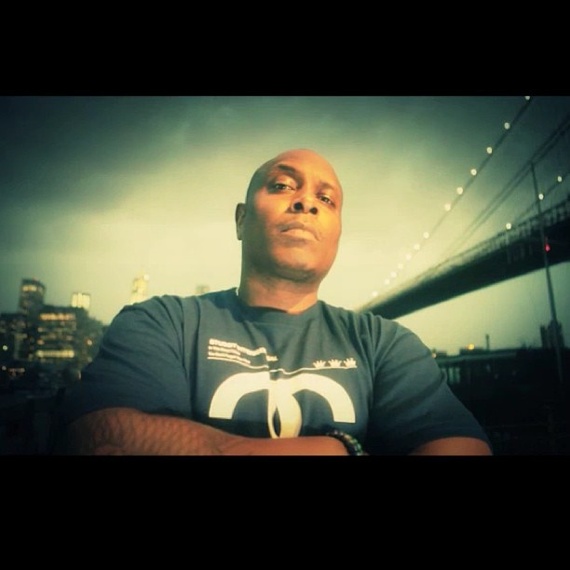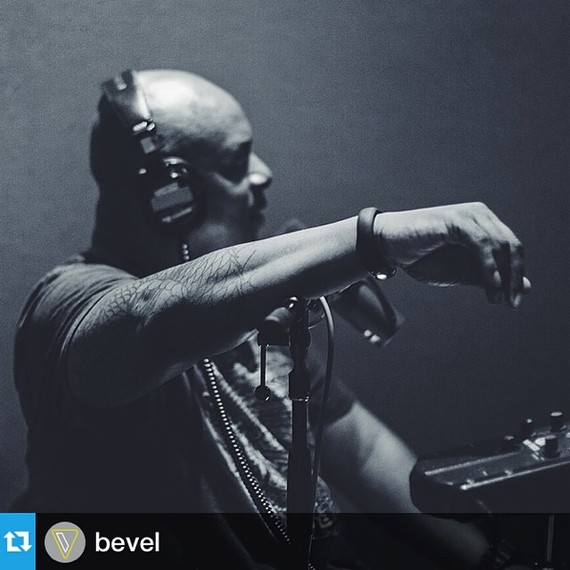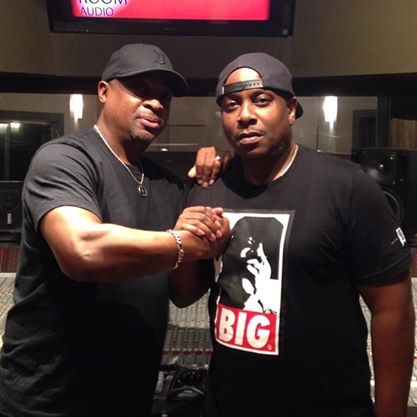Hip-hop has been around for over 30 years now. Different magazines, such as Vibe and XXL, did their part in documenting it, but it was not well preserved. As its popularity rose, the need for that documentation became more evident. For whatever reason, no one stepped up to the plate, until the foremost hip-hop historian today, Reggie Osse, more commonly known by the name Combat Jack. His Combat Jack Show has been the No. 1 podcast on hip-hop for some time now, but only recently started being accredited in the mainstream. He has been podcasting for over four years now, interviewing and documenting all the most important people about the genre, teaching us things we could have never learned otherwise. The reason he has been perfect for the job is not only because he lived during the era, but also was part of it all. If there was ever a person who should be teaching a class on hip-hop, it's this man.
Born and raised in New York City, and always with a passion for the creative side of things, he got into Cornell University. It was actually his art portfolio that had gotten him into Cornell, but before going he was warned that their fine arts program was terrible. During his first semester he realized that the advice he was given was true. He started thinking what he could transfer into. While at home for Christmas break, he happened to see the weekly paycheck of one of an older cousin, who was a lawyer at a Park Avenue firm. The number was so nice that he decided he was going to be a lawyer that day. He got into his choice school of Georgetown Law, and found a position as a clerk at Def Jam after graduation, which is where he got his start in the entertainment industry.
Soon after he started his own entertainment law firm, and believes he was doing things at the right time:
"When I started my own firm is when things really started to take off. I didn't know what I was doing, but I knew people organically so things just started to blow up. We knew Diddy, and could say hello to him. One of our earliest clients was this teenager who didn't know anything named Damon Dash, who started Roc-A-Fella records with Jay Z. And so it was like everything around me was blowing up."
As years passed he kept on seeing more success. But with more success came more drama. Despite loving the industry and the culture, the more deals that came, the more he felt something was amiss. He was also seeing the cutthroat nature of it more clearly, which was exacerbated by already being unhappy. So at the end of 2003 he took the steps to shut down his business, and woke up on January 1, 2004, not having a clue where he was headed next.
While figuring out what he was wanted next, he ended up getting a book deal, and started blogging about the industry on the Byron Crawford website as well. He did not feel comfortable using his name at the time because of attorney-client privilege issues, so he found an alias, Combat Jack. He had been reading a book at the time, Generation Kill, which later became the HBO series. There was a chapter titled "Combat Jack," and that was how the name was born. As he was writing about his exploits with Diddy, Jay Z, Damon Dash, and others in the industry, things started to take off. Soon people started to realize Combat Jack was Reggie Osse. He decided to own it, and tell people whom he was when it hit.
Over the years he took turns working with hip-hop-focused magazines such as Complex, XXL, and The Source, but some time around 2009 he realized he did not have anything he wanted to write about anymore. He also felt a shift in the industry coming, and thought it best to get out before things went sour. During his time writing he was approached about an online radio show. For some time he kept turning the idea down, but decided it was worth a try now. That show later ended up being the podcast for The Combat Jack Show. He realized this is what he would be doing for the rest of his life.
Fast forward to now, and Combat Jack has the most well-known hip-hop podcast on iTunes. He has had guests from Chuck D of Public Enemy, Young Jeezy, Ice T, Damon Dash, Common, Talib Kweli, to the rest of hip-hop's biggest names. He made a habit of not just inviting artists, but has focused on showing the culture as a whole, meaning DJs, managers, executives, friends, and so on. It is truly an all-around cultural lesson going through each episode. On the show each guest has been put on the front lines, getting asked the toughest questions. Surprisingly, though, artists have given very honest interviews each time, letting their guards down, giving some of the best interviews of their careers. Maybe Combat Jack learned from his years in the legal profession how to talk to people, but it is something he excels at.
As hip-hop gets older, we will need proper documentation for future generations to look back on. Universities everywhere have introduced classes on hip-hop, and it is a trend that has been growing. It has always been crucial to document history as it was because those historical accounts will always be used. With hip-hop, we have had all the most important things happen over a short period of time so even though things were not documented as well as they could have been, it can still easily be salvaged. If anyone who could really make sure we can look back on everything, confident we uncovered the truth, we have our number one hip-hop historian, Combat Jack.



